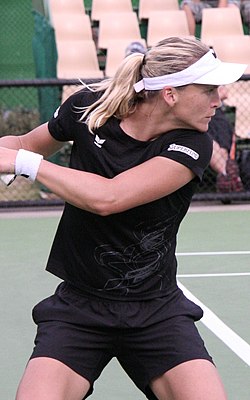Fencing

- Albert Bogen (Albert Bógathy) (1882–1961), saber fencer, Olympic silver
- Siegfried "Fritz" Flesch (1872–1939), sabre fencer, Olympic bronze
- Dr. Otto Herschmann (1877–1942), saber fencer, Olympic silver; 100-m freestyle in swimming, Olympic silver
- Ellen Preis (1912–2007), foil fencer, 3-time world champion (1947, 1949, and 1950), Olympic champion, 17-time Austrian champion















